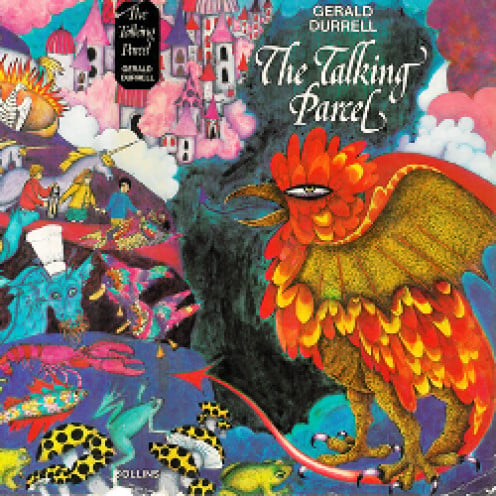The Talking Parcel
Today is World Pangolin Day, where those of us humans interested in the fate of the amazing, scaly creatures try to inform the rest of the world about their plight, and come together to just enjoy how wonderful pangolins are. The bestest thing about them apart from their cute-ness, IMHO, is their earthworm-like powers of soil aeration and so forth - as outlined here:Much of the emphasis in pangolin conservation - and much of the impetus for it - comes, though, from the poor animals' unfortunate status as the: the article I just inserted a link to about this is highly informative, and makes saddening, sobering reading.

It also has some horrifying images of pangolin bodies, inlcuding some of it served as a specialist, uber-expensive 'exotic' meal. It also has some lovely images, such as this one. The article is excellent, and does a lot to inform about pangolins, about wildlife trade (illegal and otherwise) in general, and about the issue around why larger, more 'charismatic' mammals such as the beleagured tigers, rhinos and elephants get so much more press than smaller animals including pangolins.
It doesn't address the issue of non-mammals, which also of course suffer hugely. But then, it can't cover everything, which is kind of the point of my writing this blog post at all!So what is my point?I absolutely support World Pangolin Day and all efforts to conserve the pangolin along with other animals at constant and ongoing risk from the horrors of trade in wildlife around the world.
Customizations. Audio driver for windows xp service pack 2 free download. .ALC221, ALC231, ALC233, ALC235, ALC236, ALC255, ALC256, ALC260, ALC262, ALC267, ALC268, ALC269, ALC270, ALC272, ALC273, ALC275, ALC276, ALC280, ALC282, ALC283, ALC284, ALC286, ALC290, ALC292, ALC293, ALC383, ALC660, ALC662, ALC663, ALC665, ALC667, ALC668, ALC670, ALC671, ALC672, ALC676, ALC680, ALC861VD, ALC867, ALC882, ALC883, ALC885, ALC886, ALC887, ALC888, ALC889, ALC892, ALC899 and ALC900.
The Talking Parcel Part 2 Closed Caption
But here, I just want to say a few things about the way/s in which this trade is talked about, and some of the problematic assumptions that go along with - and are sustained by - those ways of talking and thinking.For a start, I do find it problematic - at best - that much of this discourse (at least in English!) focuses on vilifying and demonising 'the Asian' market in and for 'exotic' animals. I currently live in Korea, and have no qualms in agreeing that much of the approach I have seen to animals-as-food-and medicine is pretty horrific, and hence would never deny that 'the Asian market' is both alarming and contributes massively to the peril which not just mammals like pangolins and tigers face daily, but to the similar perils and cruelties suffered by sharks and sea cucumbers, to name just a few. In terms of its discourse on OTHAs and trade in animal parts, the film does of course highlight and demonstrate reasons why larger mammals such as elephants are more focused-upon than smaller, less 'charismatic' animals such as pangolins in the fight against wildlife trade: it is somehow easier to believe that elephants are part of not just Kham's 'family', but also his cultural tradition (as represented in the opening sequence of the film), that to believe that sort of role is held by a pangolin. This points to ways in which even when we choose animals to care about, much of that decision and focus emanates not just from care for the animal itself, but from what it 'means' to humans, and in the human soci-cultural and historical context. This should, in turn, make us (re)think hard about which OTHAs we choose to care about, and why.The film also ably illustrates why elephants are deemed more 'charismatic' than many others: they are impressive on-screen, seem more 'human-like' in their expressions and family relations, and simply take up more space than wee pangolins, who would be dwarfed by Kham, their protector!
My idea is to use this blog to comment on the various 'news' stories - about other-than-human animals (OTHAs), mostly - that catch my eye online or elsewhere, but which I really need NOT to comment on at great length on things like facebook!The title comes from my admiration of Gerald Durrell and all the work he did for OTHAs in his lifetime, and from my fond recollections about reading (and re-reading) his wonderful children's novel, The Talking Parcel, as a child and as a young adult. I should read it again, of course(!), but from what I recall, it was a fantastic book for a child who - as I did, and as very many children do - already and always recognised in non-human animals a 'strange kinship', and a connection to them as fellow living, breathing beings in our shared world.